Top 10 public health and social justice media bites of 2019
by: Heather Gehlert
posted on Friday, December 20, 2019
Each year, one of our favorite blogs at BMSG is our annual Top 10 list of media bites. Our staff members narrow the selections from dozens of favorites that have grabbed our attention during research analyses and the daily news monitoring we conduct. Looking back at the year in quotes allows us to reflect not only on challenges the public health community, and our country more broadly, have faced, but also on the progress we’ve made together.
As is often the case, this year’s list covers a variety of topics; however, one theme that unifies the quotes is their ability to help move news coverage from stories about individuals to stories about communities. As Bay Area resident and disability rights activist Stacey Milbern said in a recent article for KQED, “A lot of activism work is trying to shift people to think about interdependence rather than independence. I believe if you view the needs of the most marginalized people impacted by an issue, then ultimately the entire community benefits.”
We couldn’t agree more. Many of our selections below elevate the themes of interdependence and equity. 2019 has been an intense, difficult year in many ways, but these quotes, and the voices behind them, help us approach the new year with renewed passion and enthusiasm for the issues we hold dear. We hope they do the same for you.
Equity
“Nothing I have in my black bag improves the health of a homeless person … other than housing.”
-Dr. Joshua Bamberger, associate clinical professor of family and community medicine at UC San Francisco. Appeared May 29, 2019 in KQED.
Why we like it: This quote pushes the narrative about health upstream to show that housing is not only a social determinant of health — it’s foundational to it. A growing number of health departments are taking a housing-first approach to health; however, media portrayals of housing often fail to reflect this shift, and many articles still treat housing as separate from, instead of integral to, health. Quotes like this one from Dr. Bamberger show that practitioners can use their voices to help to change this.
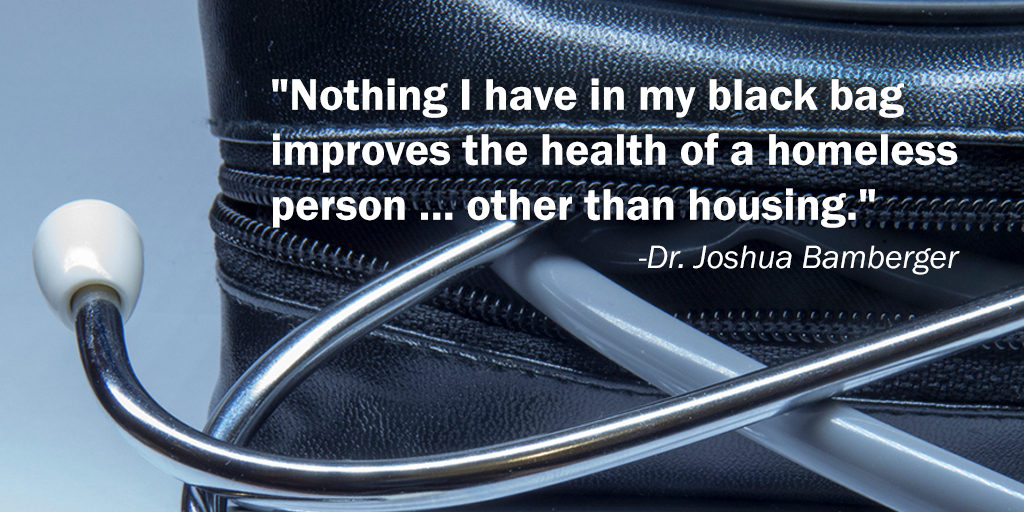
“Black children don’t get a PR firm and a softball interview when they are in need of redemption. They get an open casket and a good sermon when it’s time to appeal for grace.”
-Elie Mystal, reflecting on Savannah Guthrie’s interview with Nick Sandmann and the fundamental inequity that it represents. Appeared January 24, 2019, in The Nation.
Why we like it: When a widely circulated video revealed white high school student Nick Sandmann smirking at and blocking a Native American man from gaining access to the Lincoln Memorial, he was widely accused of racism. Yet, national news producers nevertheless invited Sandmann on the air to explain his side of the story. As Elie Mystal explains using a powerful juxtaposition, the same isn’t true for Black children. They, too, have a story, but we don’t get to hear from youth like Tamir Rice or Trayvon Martin. Too often, they are denied more than just a voice; they are denied their lives.
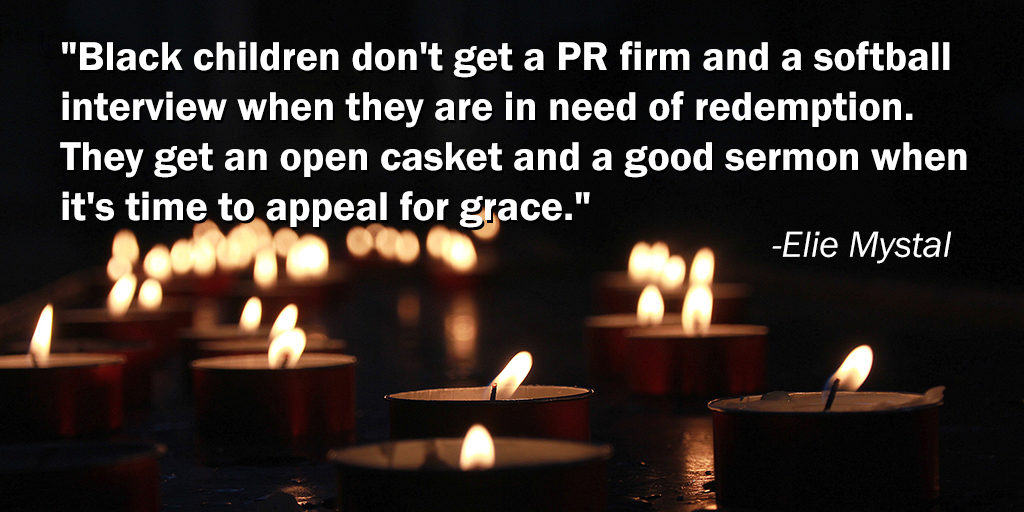
“The original ‘American Dream’ was not a dream of individual wealth; it was a dream of equality, justice and democracy for the nation. … Our ideas about the ‘American Dream’ froze in the 1950s. Today, it doesn’t occur to anybody that it could mean anything else.”
-Sarah Churchwell, a professor of American literature at the University of London. Appeared January 21, 2019, in the Huffington Post.
Why we like it: We all know the up-by-your-bootstraps, rags-to-riches frame that dominates so much of the United States’ mainstream cultural landscape. The media often reinforce this frame through “hero” stories that elevate individuals who triumph despite great odds and amass material forms of success. This quote challenges that deeply held frame, shifting our understanding of the American Dream from individual wealth to the collective good.
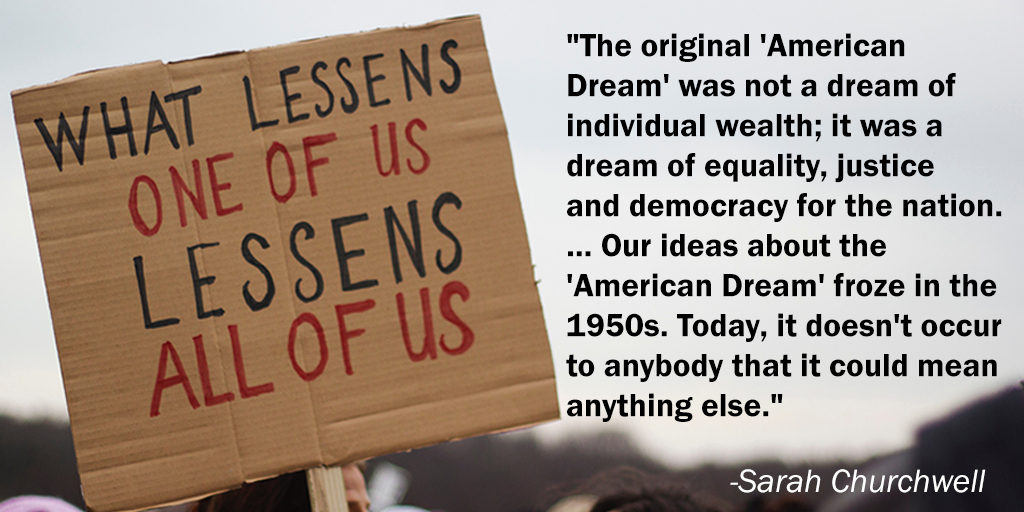
Violence
“It takes more work and more effort to get a driver’s license in Pennsylvania than it [does] to buy a gun of any kind. And something’s wrong with that.”
-Jim Kenney, mayor of Philadelphia. Appeared August 15, 2019 in The New York Times.
Why we like it: In this media bite, an elected official uses a strong comparison and irony to challenge lax gun restrictions. In doing so, he helps to move our understanding of gun violence prevention from that which is controversial to that which should be common sense.
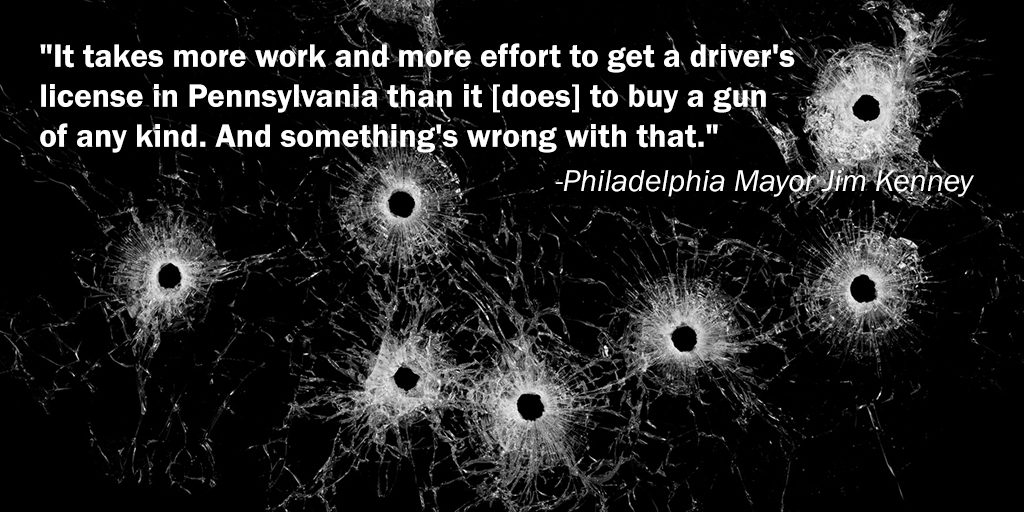
“[M]ore children die from firearms in the United States every year than all the police and American military deaths worldwide combined. No gate attendant, though, is saying to airplane passengers, ‘Children under 19 may board first because we thank you for your sacrifice of dying in your homes and schools to give men thrills and keep the gun industry profits high.'”
-Thom Hartmann. Appeared June 4, 2019 in CommonDreams.
Why we like it: Besides putting a lump in our throat, this quote offers an excellent example of social math, a strategy that we frequently encourage advocates to use to make statistics more meaningful and relatable. The quote also makes clear, in an emotionally compelling way, the social cost of unfettered access to guns.
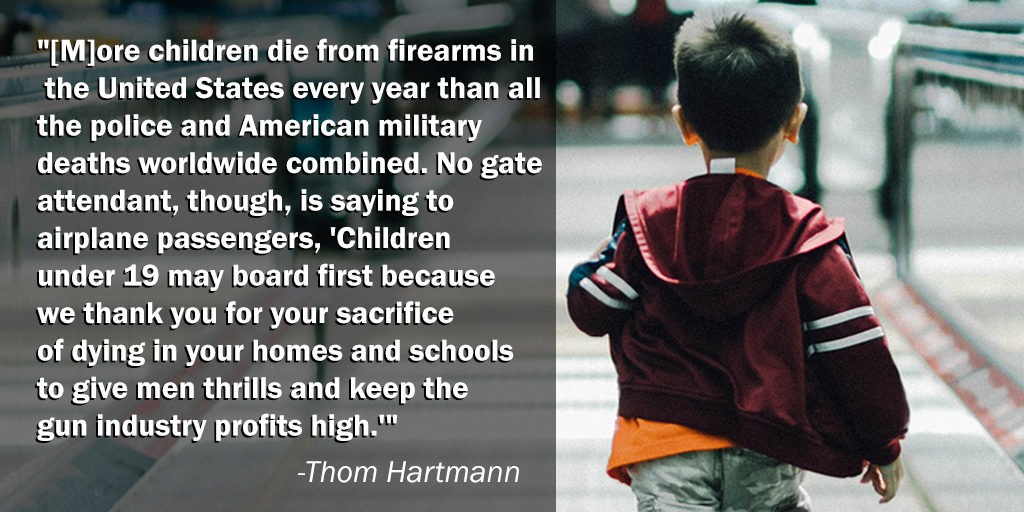
Environments and health
“If the President wants to veto this bill because he thinks the PFAS provisions go too far, I invite him to drink, bathe, or swim in some of the water our communities do.”
-Rep. Debbie Dingell (D-Mich.), whose state has several sites contaminated with a toxic, cancer-linked class of chemicals, known as per- and polyfluoroalkyl substances (PFAS). Appeared July 10, 2019, in The Hill.
Why we like it: Accountability is at the heart of this media bite, which emphasizes what happens when the people with decision-making power are out of touch with the lives of the people who will be affected by those decisions.
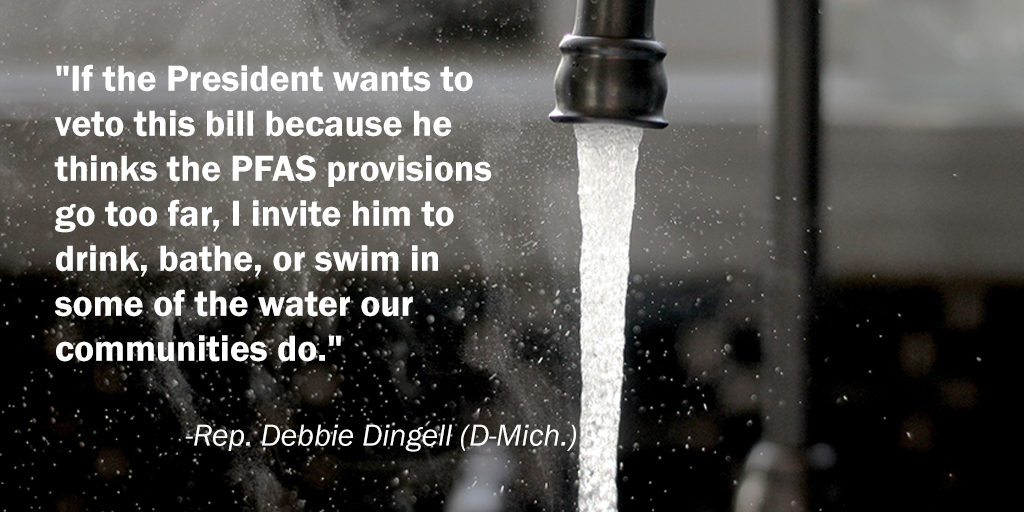
“Avoiding climate breakdown will require cathedral thinking. We must lay the foundation while we may not know exactly how to build the ceiling.”
-16-year-old climate activist Greta Thunberg. Appeared April 24, 2019 in The New Yorker.
Why we like it: This quote features a powerful metaphor and expresses can-do spirit, something we sorely need if we are to succeed in arresting climate change. As a highly effective youth activist, Greta Thunberg has garnered ample media coverage for this critical topic; however, we also hope to see more news articles in 2020 that feature other climate activists, particularly youth from indigenous communities, whose work on this issue deserves more time in the spotlight.
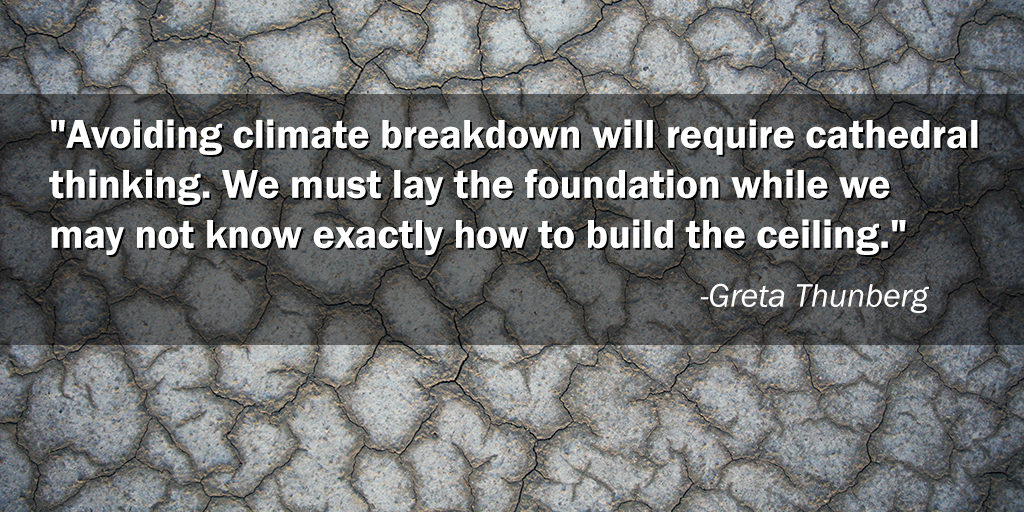
Alcohol, tobacco & other drugs
“Flavored tobacco targets kids — and addiction is the opposite of freedom. It’s the latest chapter in Big Tobacco’s long history of attempts to lure kids.”
-Gil Duran. Appeared April 16, 2019, in The Sacramento Bee.
Why we like it: When people think of freedom, they often imagine having the freedom to do — or choose — something. However, as this media bite illustrates, freedom can also mean freedom from, such as freedom from corporate influence and freedom from ill health. That reframe of an important shared value can help public health advocates counter common opposition arguments from Big Tobacco and other industries.
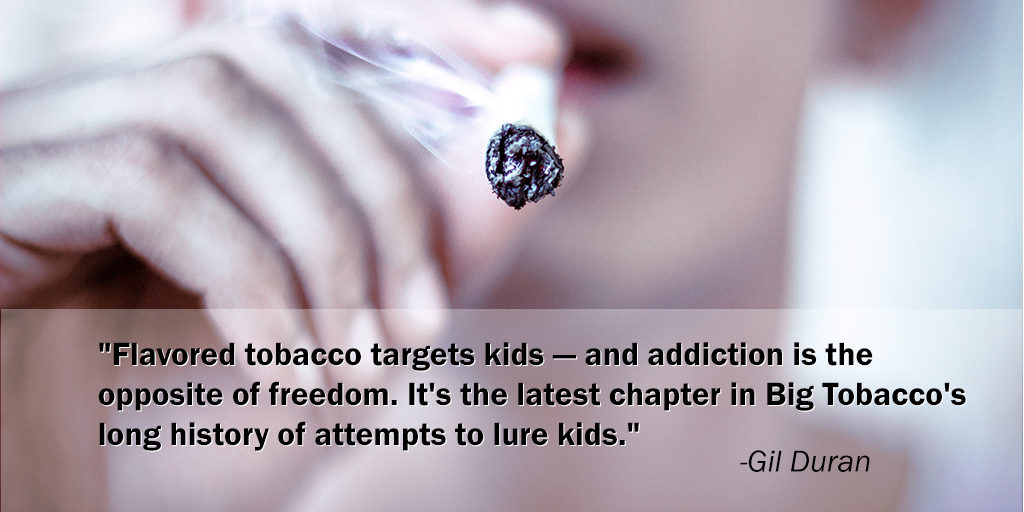
Media
“We already have the tools we need to check the domination of Facebook. We just seem to have forgotten about them.”
-Chris Hughes, a co-founder of Facebook. Appeared May 9, 2019 in The New York Times.
Why we like it: Issues like consumer privacy, social media, and the threats they present to our democracy can feel overwhelming, both for their technicality and their scope. Too often, that feeling can stifle outrage and lead to resignation. But this quote reminds us that change is within reach, in this case through better regulation.
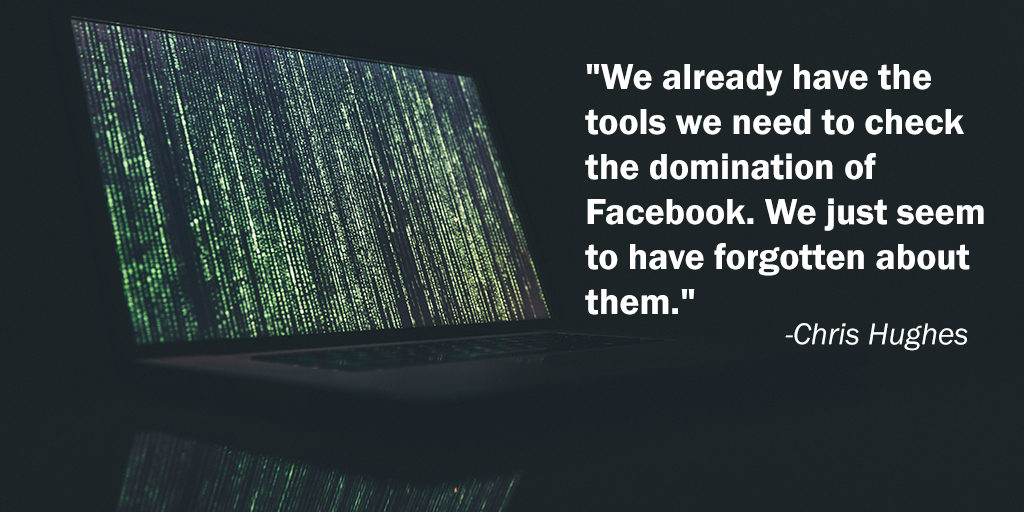
Democracy
“I hear people talking the language of participation, justice, equality and transparency but almost no one raises the real issue of tax avoidance, right? … It feels like I’m at a firefighters’ conference and no one’s allowed to speak about water.”
-Rutger Bregman, author of the book Utopia for Realists. Appeared January 30, 2019 in The Guardian.
Why we like it: Taxes are how we pool our resources to make equity possible across many populations and social justice issues. But it’s rare for sources quoted in the media to make this connection so explicit. In this media bite, Rutger Bregman discusses the irony of people traveling by private jet to hear a talk about climate change, while no one was talking about raising taxes on the rich. Through our work with Public Health Awakened, we hope to further shift the narrative on taxes in relation to health and equity.
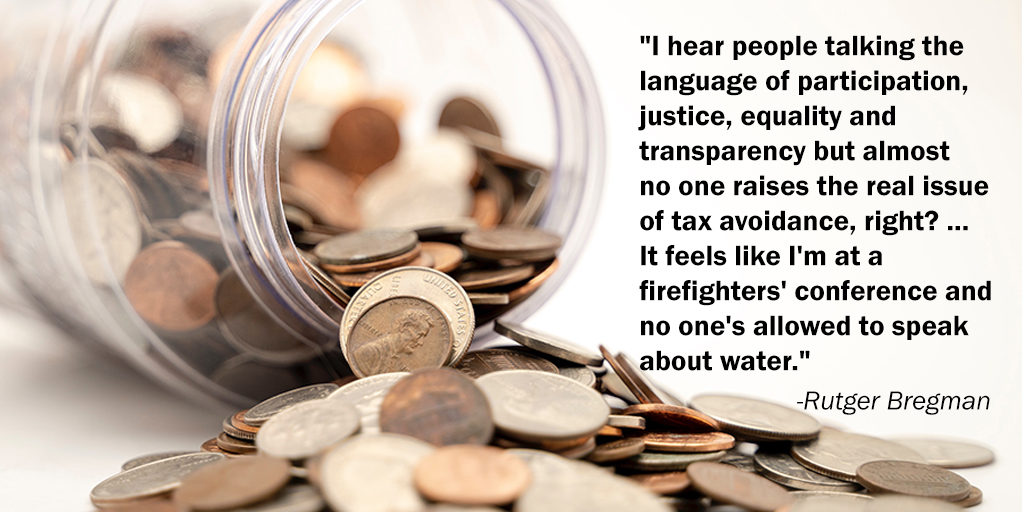
What were your favorite media bites from 2019? Share your quotable quotes with us @BMSG, on Facebook, and via email at info@bmsg.org.



